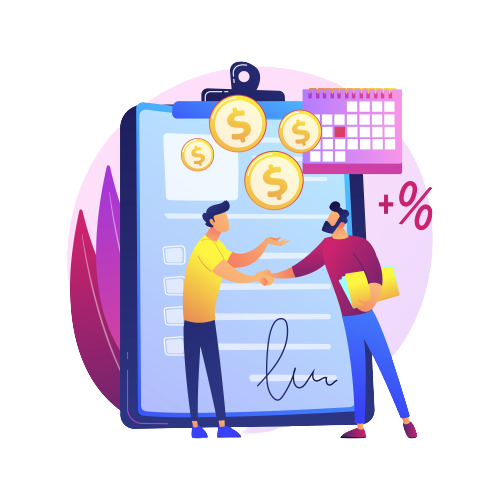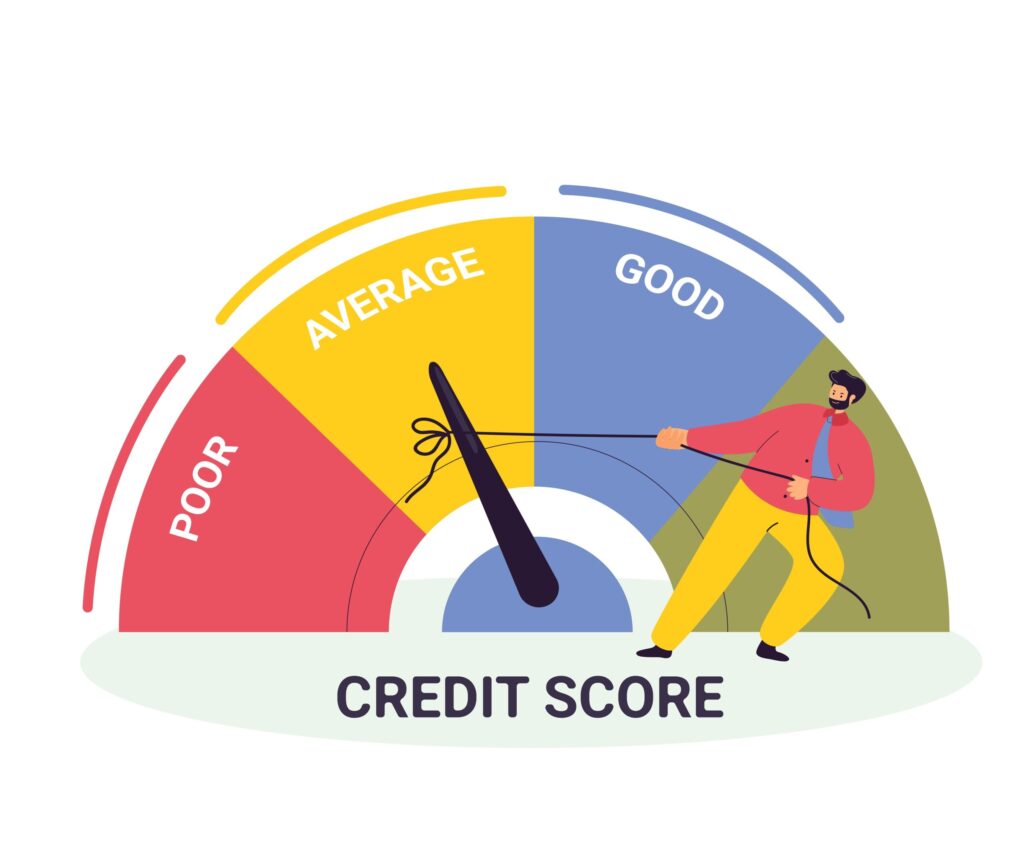What we offer
Debt Counselling
Helps if you are debt-stressed by reviewing your budget and re-arranging the payments — saving you money.


Debt Consolidation
Converts your debts into one, more affordable payment. Reduce interest costs and unlock cash-flow.
Credit Monitoring
Get your Credit Report, view your score and track your payments as often as you like. Free!

We are here to help you...
What we can do for you!
Free consultation and advice.
What we can do for you!
Reduce your interest rates on your loans - average down to as low as 7%!
What we can do for you!
Save you on interest and fees.
What we can do for you!
We’ll deal with your creditors for you.
What we can do for you!
Extend your payment terms.
What we can do for you!
Investigate reckless lending.
What we can do for you!
Avoid your home and vehicle being repossessed.
F.A.Q.
Things you should know.
A section 129 notice is the last step before the legal process begins and it can be considered one of your last chances to do something to prevent legal action from your creditors. The notice is issued in terms of section 129 of the National Credit Act (NCA) and advises a consumer that they are in arrears of a certain amount in unpaid instalment(s) at a given date.
The credit provider or their attorney may issue notice according to section 129 of the NCA at any time after the client has been in arrears for more than 20 business days. The credit provider may not proceed with any legal action without having fully complied with NCA requirements as contemplated in section 129 and section 130.
The section 129 notice is your last chance to take action before you are faced with serious legal action from your credit providers. Seeking a debt management solution such as debt counselling can help you to avoid legal action and will protect your assets from repossession. You can speak to one of our professional consultants today who can assist you with one of our life changing solutions.
What will a section 129 notice look like?
A section 129 notice will have to fulfil the general requirements and should possess some key elements such as your name, ID and address. A section 129 notice should be clearly dated and should state the agreement which the client is in default and the specific amounts thereof. It should also clearly indicate that the letter serves as “notice in terms of section 129”. The notice should state in no uncertain terms that the consumer is in default. The intentions of the credit provider to enforce his rights per the agreement must be clearly stated, as well as possible remedies and a timeframe to avoid further legal action.
There are specific criteria outlined in the NCA that deems a 129 notice valid. These are as follows:
- a) Notification of the consumer’s default should be given to the consumer. It is important and a precondition that the consumer be made aware of his default;
- b) The notification should be in writing;
- c) The notification should comprise a certain format, stating in no uncertain terms what the consumer’s rights and options are;
- d) The notification should disclose the intent on the credit providers front to reconcile and negotiate a plan to help the consumer out of his default,
Section 129(1)(b) adds to the above mentioned criteria by stating that:
- a) Legal action may not be taken against a consumer in default if the notice as envisaged in section 129(1)(a) has not been delivered;
- b) Legal action may not be taken against a consumer should the requirements as stated in Section 130 not be met
Section 129 notice of the NCA is the last step before legal action and should be taken very seriously to prevent legal action. At this point, you do still have options, so do not hesitate to seek the professional help of a debt counsellor.
Submit your details on the Free Call Back Form on this page to discuss your options with a Consultant.
Debt is a widespread problem in South Africa that is rapidly increasing through the country and the majority of consumers are now in need of debt counselling. Determining whether you are in debt and in need of debt counselling can be done by asking yourself the following questions:
- Are you being hounded and hassled by Credit Providers?
- Are you struggling to make your monthly debt repayments on time?
- Are you paying for household expenses on credit?
- Do you have garnishee orders against your salary or various assets?
- Are you struggling to service your debt problems and pay off your loans?
- Would you like to avoid bankruptcy?
- Do you want to be debt free and no longer have bad credit?
If you answer YES to most of the above questions, Debt Helper debt counselling service is the right of option for you.
If you cannot afford your debt repayments, the best thing to do is to contact a debt counsellor that is registered with the National Credit Regulator (NCR). Debt Helper will conduct a full assessment on your financial situation and advise you on whether or not you are in need of debt counselling.
If you are over-indebted, Debt Helper will introduce you to the process called debt counselling. A debt counsellor will take into account your income and expenses and will work out a new debt repayment plan comprising smaller instalments and extended terms. Most importantly, the debt counsellor will conduct various checks to make sure you can afford to repay your debt.
Debt counselling reaps many benefits for South African consumers:
- Your debt will be restructured. Your income and expenses will be taken into account and you will now be able to afford your debt.
- A registered debt counsellor will negotiate with your credit providers on your behalf.
- You will make one monthly payment to a payment distribution agency, who will then pay your credit providers.
- Interest rates will be reduced and debt repayment terms
- You will be legally protected and no longer hassled by credit providers.
Contact Debt Helper today on +27 67 271 3015 for financial advice and take the step to becoming debt free and stress free today. Debt counselling could be the right option for you!
Credit card debt consolidation is a viable debt solution for consumers that have accumulated a large amount of credit card debt. Credit card consolidation enables the consumer to consolidate multiple credit card payments into one single monthly payment. Fundamentally, credit card debt consolidation consists of consolidating high interest rate credit cards, to lower interest rates.
We can help you consolidate your credit card debt. As accrued interest charges begin to increase, the consumer gets further and further into debt, and therefore greater amounts of money are paid than necessary. Debt Helper credit card debt consolidation is therefore an effective method of becoming debt free. Debt Helper are able to secure lower interest rates on credit card debts, thus reinforcing that credit card debt consolidation is a worthwhile debt solution.
How to ensure credit card debt consolidation is worthwhile for you:
- Make a list of your current credit card debt interest rates
- On another list, write the new interest rates that you would acquire
- Compare the interest rates. If the new rate is lower than the old one, credit card debt consolidation would make sense to you.
Credit card debt consolidation:
- Prevents clients from paying high interest rates on credit card debt
- Merges multiple credit card debt payments into one monthly payment
- Ensures consumers are on the way to becoming stress free and debt free, by paying bills each month
- Reduces payments each month
- Makes it possible to close other credit card accounts
A South African consumer approached Debt Helper with the following question:
I would like to obtain a debt consolidation loan. I have had two bad years where I have made several bad financial decisions. I have three loans, from different credit providers, and my credit card account is in arrears.
What I would like to do, is combine all my debt into one amount and only pay that one amount off on a monthly basis. However, if this is not a possibility, what other alternative solutions do you propose?
Debt Helper advises the following:
Your situation is what one would refer to as the classic “debt cycle”, whereby individuals borrow too much credit that they can no longer afford to pay off and therefore end up taking out additional larger loans in order to pay off their current accrued debt.
The problem is, eventually you will no longer be able to meet your debt repayments as your debt will become unaffordable. However, you need to remember that you are not alone and many South African consumers are in the same position as you right now.
A debt consolidation loan, whereby you borrow one large amount of money in order to pay off all your smaller debts would be a solution that can assist you with becoming debt free. Basically, you consolidate your debt into one amount and thus, no longer have to deal with the hassle of making multiple payments. But, due to the spiralling debt crisis in South Africa, the banks have turned down the taps on unsecured lending, making it more difficult to get a debt consolidation loan.
South African banks are only likely to grant a consumer a debt consolidation loan if they are able to comfortably afford their debt repayments. Debt consolidation loans are only paid out to personal loans and not credit card accounts, and often they are only paid to one credit provider, which hinders the process of settling your debt. Debt consolidation loans were introduced primarily for convenience.
Its main aim is to reduce the hassle of paying multiple credit providers and not a solution to help reduce debt instalments and settling debt faster.
In your particular situation, it would not be possible to obtain a debt consolidation loan, due to your current affordability status, as well as due to the fact that a consolidation loan does not cover credit card debts.
However Debt Helper offers an alternative debt solution similar to debt consolidation, called debt counselling.
Debt counselling is a debt solution where a debt counsellor will restructure your debts, by negotiating interest rates with your credit providers. Your monthly debt repayments will be reduced as interest rates will be renegotiated to a lower amount.
Debt counselling consolidates all your debt repayments in to one amount, without having to take out a loan and covers credit card repayments. Thus, like debt consolidation, with debt counselling you only have to make one monthly payment to a Payment Distribution Agency.
In order to find out more information about debt counselling contact Debt Helper on 067 271 3015 or visit the Debt Helper Website at www.debthelper-co-za.preview-domain.com. As an alternative to debt consolidation, watch Debt Helper animation explaining the debt counselling process.
Debt review (debt counselling), Administration and Sequestration are viable debt solutions, offered by Debt Helper to South African consumers struggling to make their debt repayments are faced with financial difficulty. All debt solutions are implemented through Debt Helper systematic business processes, however they have several differentiating factors.
Administration:
Administration is a debt solution implemented by Debt Helper whereby the clients current debt instalments are reduced and the credit providers receive a debt repayment once every three months.
It is a legal process whereby the debt repayment terms are extended, but the downfall lies with the fact that the process is lengthy and takes much longer than debt counselling.
• Interest rates are only reduced to 15.5%
• The terms of the repayments are extended indefinitely
• Payments are only distributed every 3 months (interest adds up)
• Is only applicable for debts that total less than R50 000
• The fees are 12.5% + VAT + distribution costs per month
• Clients payment often becomes a salary deduction, so your employers will find out
Sequestration:
Sequestration is another debt solution offered by Debt Helper**.** The process entails selling an individuals current assets in order to pay off or lessen their current debt. In addition to this, the court will appoint someone to manage the clients money and thus, it is an expensive process.
• Clients are forced to sell all their personal assets eg. home, car, furniture, valuables.
• The process will cost clients at least R20 000 in legal fees
• Sequestration is not an option unless it is in the credit providers’ best interests, thus the client needs to offer at least 15% of what they owe
• Rehabilitation is only possible after a period of five years.
Debt Review (debt counselling):
Debt review is a debt management solution implemented in order to assist South African consumers with solving their debt problems. The process of debt review will ensure that the clients debt repayment plan is extended and their current interest rates are reduced, as a professional Debt Helper financial consultant will negotiate with the clients credit providers.
The following information sums up the debt review process:
• Debt Helper will restructure your debt after assessing your financial situation
• Debt Helper will negotiate your debt repayments with credit providers
• Debt repayments are consolidated into one affordable monthly repayment, paid to an NCR regulated payment distribution agency
• Debt repayment terms are extended
• Once debt repayments have been made, credit bureaus will be notified and credit records will be adjusted.
• Banking fees are reduced and costs are cut, saving you money.
Debt review, administration and sequestration are all solutions targeted at solving the debt problems South African consumers currently face.
